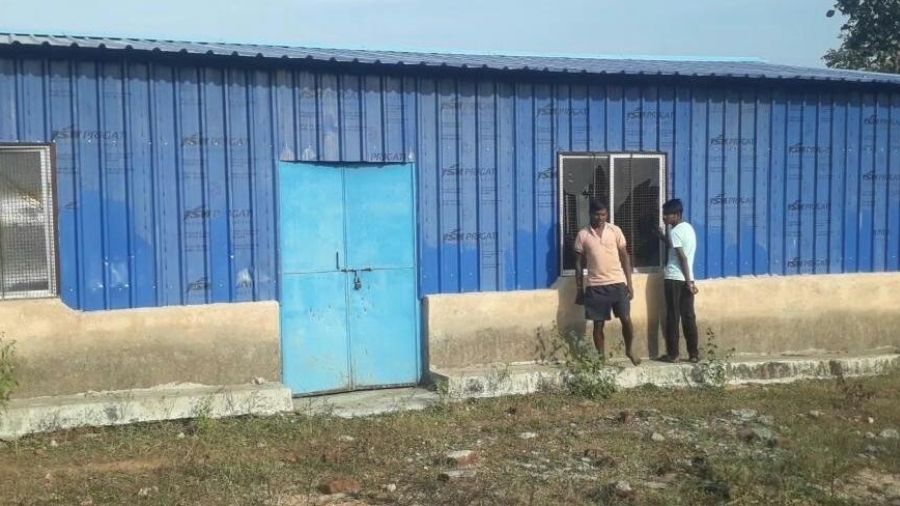The honey processing plant set up at the densely Maoist-infested, remote locality of the Domakharn village under the Garu block continues to be non-operational even after two years of its inauguration.
Abu Imran, the Deputy Commissioner of Latehar, a district which covers Domrakharn, said the issue has been brought to his notice and he has directed the BDO of Garu, Tutu Dilip, to find out the reason why no work had started in the honey refining plant in all these years.
He informed that according to the preliminary reports, a possible lack of infrastructure was keeping the plant non-operational.
The executive engineer of electricity claimed that there was no issue of power supply in the area, and neither was water, Imran said.
The plant was set up to collect honey for processing, the DC said.
The Jharkhand Marketing Cooperative Federation had, in 2019, offered financial aid to set up the plant, Tutu Dilip informed, adding that he has no idea what the estimated cost of the plant was.
Garu Madhu Sah Van Utpadak Sahyog Samiti was the user agency for this plant, but they have shown no interest in starting any work here.
Though Domakharn is a remote area with no cell phone connectivity and a Maoist hotspot, the Garu block, which encompasses the area, is rich in honey and kendu leaves used for making bidi in Uttar Pradesh.
The distance between Latehar district town and Domrakharn is around 60 kilometers.
S Oraon, a tribal residing at Garu, informed that the women of his community refused to collect honey for the plant as they were not sure of the wages they would be getting for their work.
According to sources, big companies have their agents in the area, who collect honey straight from the tribals, and then send it to UP for aggressive marketing.
The locals say that Maoists rely upon honey hugely, as they try to increase their immunity by consuming it. According to them, the rebels use it to shield themselves from Covid-19, as no one including the police has ever heard of a Maoist suffering from the infection.










